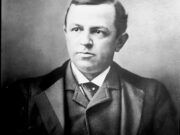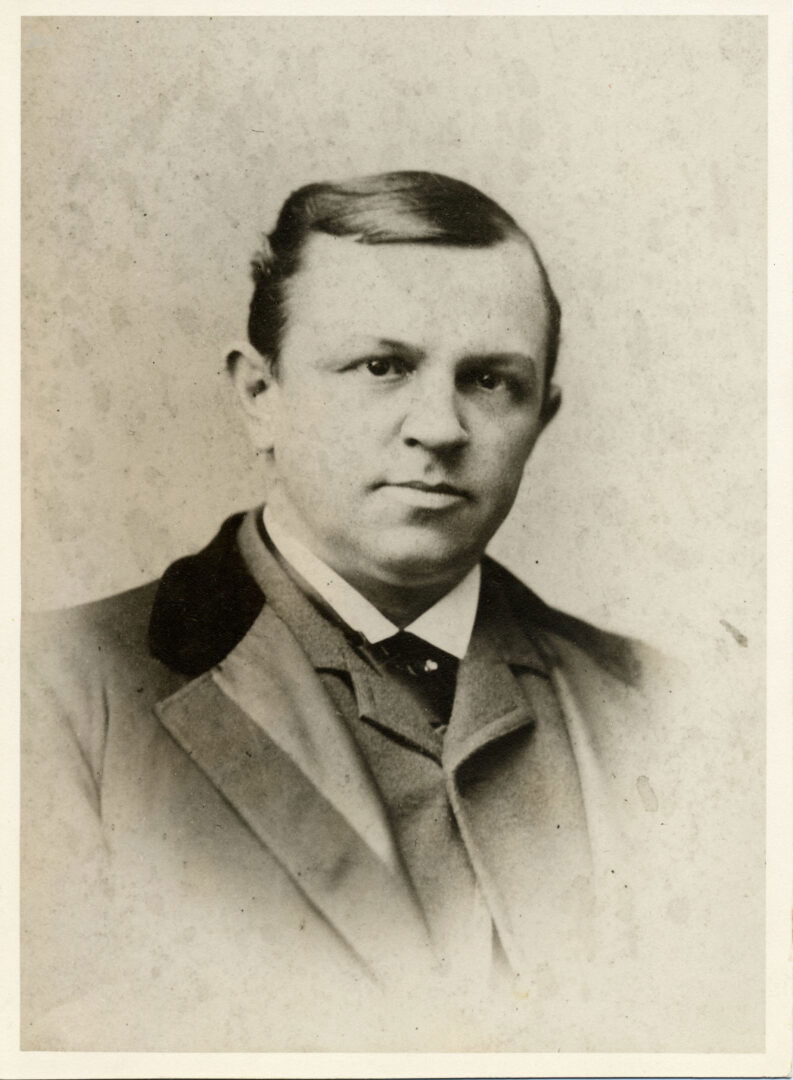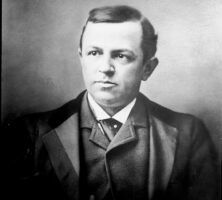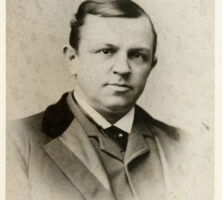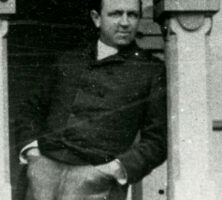Henry W. Grady, the “Spokesman of the New South,” served as managing editor for the Atlanta Constitution in the 1880s.
A member of the Atlanta Ring of Democratic political leaders, Grady used his office and influence to promote a New South program of northern investment, southern industrial growth, diversified farming, and white supremacy.
Early Life and Career
Henry Woodfin Grady was born on May 24, 1850, in Athens. His father, William S. Grady, a successful merchant who served as a major in the Confederate army during the Civil War (1861-65), died in the fall of 1864 from wounds received at the siege of Petersburg, Virginia. Brought up by his mother, Anne Gartrell Grady, young Grady showed talent as a writer and debater. After graduating from the University of Georgia, he briefly studied literature and history at the University of Virginia in Charlottesville before returning to Georgia in 1869 to pursue a career in journalism.
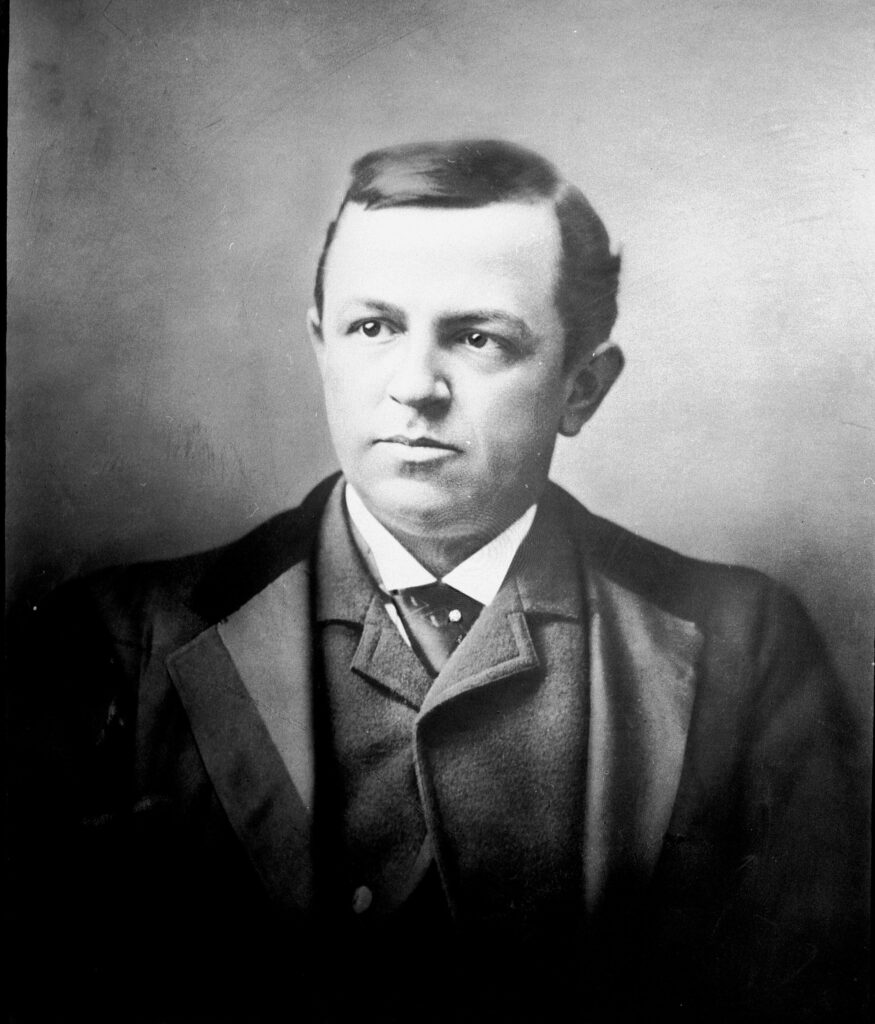
Grady first wrote for the Rome Courier before its bankruptcy in 1871. After marrying Julia King of Athens, he shared ownership of the Atlanta Daily Herald with Robert Alston and Alexander St. Clair Adams. On March 14, 1874, Grady published an editorial in the Herald entitled “The New South,” in which he advocated industrial development as a solution to the postwar South’s economic troubles. His aggressive, no-nonsense writing style and promotion of railroad development in Atlanta brought him to the attention of Evan P. Howell and W. A. Hemphill, major stockholders of the Atlanta Constitution. Howell offered Grady one-fourth ownership of the newspaper for the price of $20,000, along with the position of managing editor. Grady enthusiastically accepted both offers.
Grady and the Atlanta Ring
As managing editor Grady quickly turned the Constitution into a platform for endorsing his own political views. He wrote in support of antiliquor laws, the construction of a new library, and care for Confederate veterans. Grady also endorsed white supremacy, and under his watch, the Constitution sometimes printed flippant copy that made light of lynching. Between 1880 and 1886 the Constitution became the primary instrument of the Atlanta Ring, a loosely connected group of urban, pro-industry Democrats that included Howell and Grady. Grady became the group’s leader and dominant political force, helping to arrange the legislature’s election of a fellow Ring member, Joseph E. Brown, to the U.S. Senate in 1880.
In 1883 Grady orchestrated the throwing of party votes toward Henry McDaniel’s nomination for governor. When McDaniel refused to run again in 1886, challenges emerged from rival Democrats centered in Macon. Grady supported Ring member John B. Gordon for the party’s nomination, using the Constitution to coax voters with promotional articles and speeches. Despite the Macon coalition’s support from local newspapers, Grady’s politicking won Gordon’s election as governor.
Grady’s New South
With the Atlanta Ring’s influence in Georgia politics firmly established, Grady turned his attention toward promoting the city’s economic development. After his coverage of the 1886 Charleston, South Carolina earthquake brought him national attention, he was invited to speak at that year’s meeting of the New England Society in New York City. Grady preached the promises of a New South, arguing that slavery and secession were dead in the region, and that northern financial help would aid reconciliation between former enemies while turning a profit. He also urged northerners to allow white southerners to manage the rights of Black citizens. Though these ideas were not original to Grady, his advocacy of unity and trust between the North and South helped to spur northern investment in Atlanta industries.
Upon returning to Atlanta, Grady published in the Constitution numerous articles proclaiming the superiority of Atlanta for its diversified small industry and “willing” labor force. Grady infuriated competitors in Augusta, Macon, and Athens with these claims, but his promotional efforts brought results. In 1887 he successfully lobbied for the establishment in Atlanta of the Georgia Institute of Technology, a state school devoted to vocational and industrial education. In 1881, 1887, and 1895 Atlanta hosted cotton expositions, industrial fairs that attracted millions of investment dollars and provided new jobs to the city’s growing population.
Mixed Vision
Despite such achievements, Grady’s New South was not universally accepted. Agrarian pundit Thomas E. Watson criticized Grady for allegedly submitting Georgia to northern interests and oppressing farmers. Farmers likewise could not follow Grady’s advice to raise other crops alongside cotton for additional revenue and higher cotton prices due to stringent demands from lenders.
Grady also struggled to portray a benign racial climate for northerners interested in southern industrial investment but troubled by the region’s oppressive racial order. In numerous Constitution editorials Grady claimed that African Americans enjoyed “fair treatment” in Georgia and throughout the South, despite many Black laborers being trapped in the state’s brutal convict leasing system or stuck in debt peonage through unequal sharecropping contracts. Though such rhetoric pleased white southern readers, few northern reformers looked past the region’s record of Black disenfranchisement, exploitation, and violence.
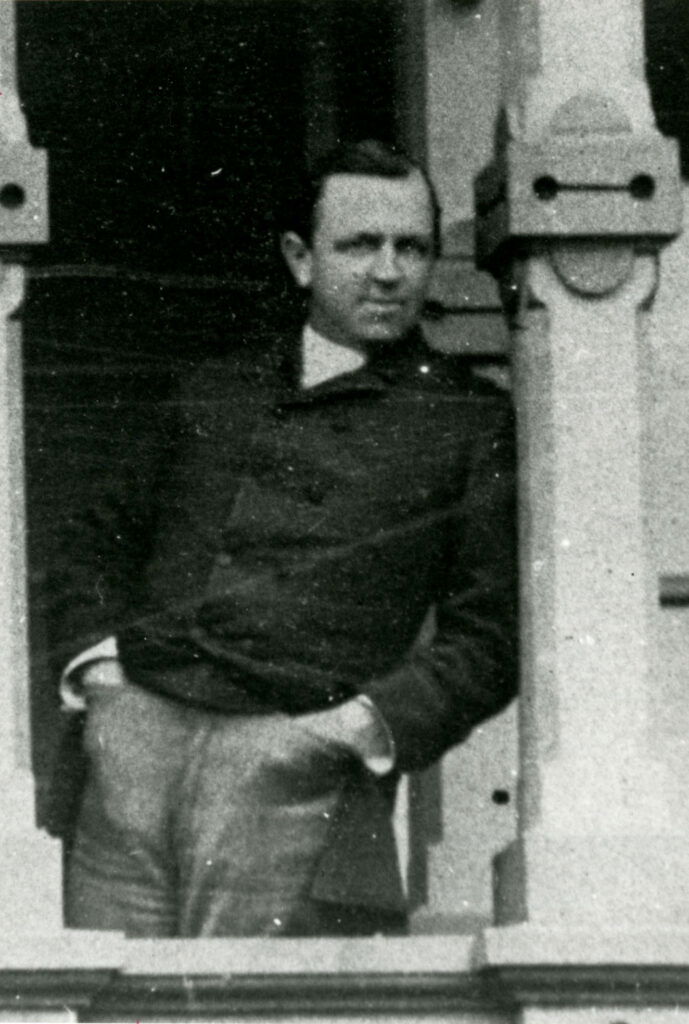
In 1889, northern Republicans introduced a bill that would provide for Federal intervention in southern elections where Black citizens were denied the vote. In response, an increasingly ill Grady traveled north to make the case against it. At a speech in Boston, Grady argued that northern and southern whites had previously united to expel indigenous peoples and exclude Chinese workers. He then argued that whites of both regions should never allow African American equality in society. The U.S. House of Representatives narrowly passed the bill, but it failed in the U.S. Senate after southern senators filibustered it.
Grady’s journey exacerbated a previous illness, and he died shortly after returning to Atlanta on December 23, 1889. His influence as the spokesman of the New South was extensive, providing both the political framework and the rhetorical motivation for Atlanta as a burgeoning symbol of the New South. Within a few years of his passing, Atlanta erected a statue in his honor. While the bronze figure of Grady was cast in Massachusetts, the granite for the base was quarried in Georgia.
Grady County, created in 1905, is named in his honor, as is Grady Memorial Hospital in Atlanta and the Grady School of Journalism at the University of Georgia. Henry W. Grady High School in Atlanta was also named for him in 1947, but was renamed Midtown High School in 2021 after several students and residents protested the name in light of Grady’s support for white supremacy. He was inducted into the Georgia Writers Hall of Fame in 2004.


